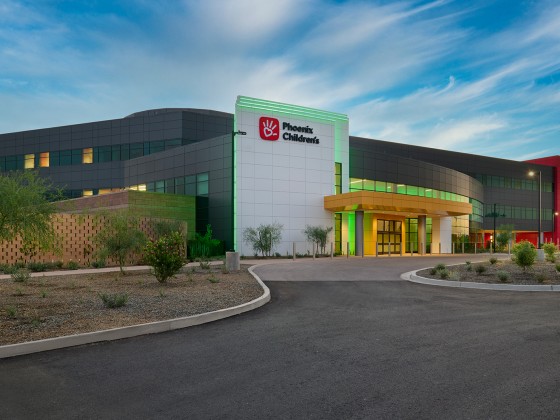Spiritual Care, part of Patient & Family Services at Phoenix Children’s, focuses on taking a holistic approach to caring for each child and family. We understand that the healing process isn’t just physical, but also emotional and spiritual.
Our team of clinically trained, on-site and on-call chaplains supports each family’s unique spiritual needs – whether you have a specific faith or no faith. We draw on your individual beliefs to help you deal with the difficulties that often come with chronic illness and hospitalization.
Contact Spiritual Care Services
602-933-4635
What is a Chaplain?
A hospital chaplain is a professional, who has completed a specific clinical training program. Chaplains provide spiritual and emotional support in a hospital setting during times of grief, crisis, illness or stress. When you need someone to talk to, a chaplain can help.
Sometimes, people assume that chaplains only offer religious support and are only available during crisis. However, our chaplains are here for you regardless of your religious affiliation, cultural background or stage of life.
What Does a Chaplain Do?
A chaplain journeys with families, connecting you with what brings you meaning and courage during difficult circumstances. For some, that means finding strength through prayer and religious texts. For others, it means receiving tailored care that meets them in their moment and circumstance.
A chaplain delivers a wide range of services at a child’s bedside as part of the care team during rounds, care conferences and ethical consults.
Many families find comfort in having someone to talk to about their fears, doubts and questions. When you’re going through a tough time, you don’t have to do it alone. A chaplain can offer support, pray with you or listen – whatever you need.
Here are a few ways chaplains offer emotional support:
- They are present when you need a compassionate, listening ear or shoulder to cry on.
- They talk through medical decisions and how your faith, values and culture can be resources in the decision-making process.
- They help you think through issues of spiritual distress, such as hopelessness, anger, guilt or abandonment.
- They talk with you about how your faith strengthens or challenges you.
- They discuss spiritual or religious concerns you’re working through.
Our chaplains also work closely with our Palliative Care team to provide bereavement support when needed.
If you’re looking for faith-based resources, chaplains can connect you with what you need. As interfaith chaplains, we work with families of all religious backgrounds or no religious background. At your request, we can:
- Assist staff, families and patients with navigating ethical dilemmas.
- Connect you with outside local clergy of your faith tradition.
- Help your medical team understand how your spiritual background and beliefs impact medical decisions or circumstances.
- Provide sacred literature and items from diverse faith traditions.
Some families ask our chaplains to facilitate prayers, sacraments or rituals, which we’re happy to do. Many of our chaplains regularly preside over baptisms and weddings. They also do cell blessings, blessing of hands for staff, Communion and ashes on Ash Wednesday.
We work closely with a lot of the clergy in our community. If we can’t do a specific ritual, we find clergy in the community who will come to the hospital.
As part of Spiritual Care, we oversee interfaith spaces, including a chapel and a prayer room, both open 24/7. These spaces serve as quiet areas for meditation, prayer or reflection. We also a host support group for patients, families and siblings.
Request Chaplain Services
Families can request chaplain services directly, or your care team can refer you. Our chaplains are onsite at the Phoenix Children’s Hospital – Thomas Campus daily from 7 a.m. to 7 p.m. but available by phone 24/7. A chaplain is always on call for immediate needs.
To request chaplain services, call 602-933-4635.
If you prefer, you can have your own clergy visit the hospital. Review the visitor protocol for more information.
Find the Chapel
You can find our interfaith chapel at the Thomas Campus. We also have a prayer room at the Arrowhead Campus.
Both are located on the first floor and open 24/7.


